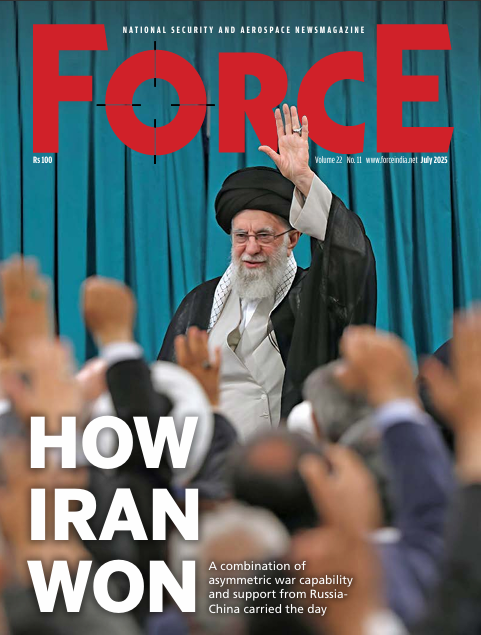Rajnath Singh Commends Efficacy of Indigenous Equipment During Op Sindoor
.jpeg)
Addressing
the Controllers’ Conference of the Defence Accounts Department (DAD) in New
Delhi on July 7, defence minister Rajnath Singh emphasised upon the
department’s critical role in strengthening the operational readiness and
financial agility of the armed forces. Referring to the success of Operation
Sindoor, he stated that the valour displayed and demonstration of the
capability of domestic equipment has further increased the global demand for
the indigenous products. “The world is looking at our defence sector with new
respect. A single delay or error in financial processes can directly affect
operational preparedness,” he said. He also called on the DAD to evolve from a
‘controller’ to a ‘facilitator’ in sync with increasing participation of the
private sector in defence.
Singh credited the ongoing transformation in the defence
sector to the visionary leadership of Prime Minister Narendra Modi, under whose
guidance the country has moved towards Aatmanirbharta
and structural reform in defence planning, finance, and innovation. “Most of
the equipment we once imported is now being made in India. Our reforms are
succeeding because of the clarity of vision and commitment at the highest
level,” he added.
Addressing the larger geopolitical context, Singh
mentioned the rising global military expenditure reaching USD 2.7 trillion in
2024, as per Stockholm International Peace Research Institute and stated that
this opens up tremendous opportunities for India’s indigenous defence
industries. He stressed that India’s industries must be prepared for the global
demand shift and play a larger role in exports and innovation. “Our effort is
to ensure that decisions are taken swiftly so that we can begin manufacturing larger
engines right here in India and that this journey begins with the hands of
Indians,” he added, reaffirming the government’s commitment to building
advanced indigenous defence manufacturing capabilities.
Highlighting the increasing strategic and economic
significance of the defence sector, Singh called for a shift in perception from
defence spending as mere expenditure to an economic investment with multiplier
impact. “Until recently, defence budgets were not seen as part of the national
economy. Today, they are growth drivers,” he added. He mentioned that India,
along with the rest of the world, is entering a new phase of re-armament,
marked by capital-intensive investments in the defence sector. He urged the
department to incorporate defence economics in their planning and assessments,
including social impact analysis of R&D projects and dual-use technologies.
The defence minister also referred to the recently
launched Research, Development and Innovation (RDI) Scheme with a budget of Rs
1 lakh crore, which prioritises defence sector innovation and procurement of
high-end technology. He encouraged the DAD to become active enablers in
ensuring smooth implementation and timely funding of such projects,
particularly from start-ups, MSMEs, and the private sector. He highlighted the
fact, for the first time, the Defence Acquisition Council has approved the
acquisition of weapon systems through the capital route and urged the department
to be prepared for financial activities related to this shift.
“Peace time is nothing but an illusion. Even during
periods of relative calm, we must prepare for uncertainty. Sudden developments
can force a complete shift in our financial and operational posture. Whether it’s
stepping up equipment production or adapting financial processes, we must be
ready with innovative techniques and responsive systems at all times,” Singh
said. He urged the DAD to incorporate this mindset into their planning,
budgeting and decision-making systems.
Subscribe To Force
Fuel Fearless Journalism with Your Yearly Subscription
SUBSCRIBE NOW
We don’t tell you how to do your job…
But we put the environment in which you do your job in perspective, so that when you step out you do so with the complete picture.








